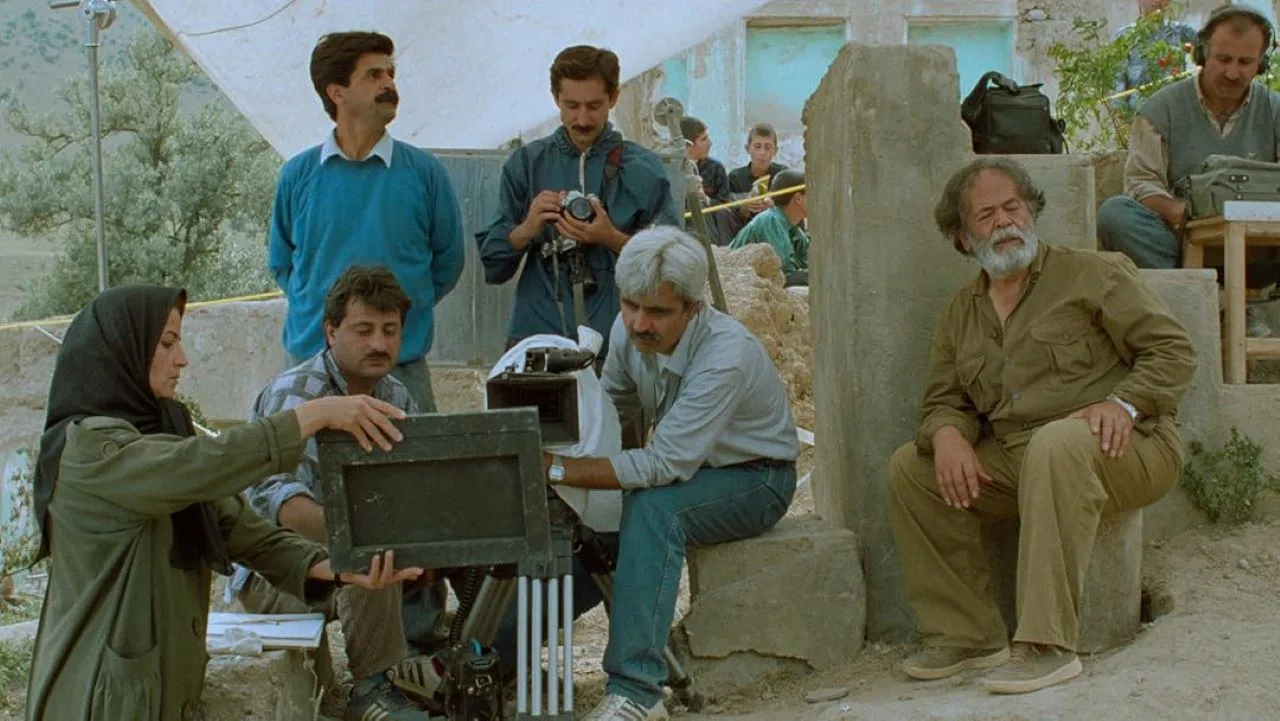[ad_1]
F
or centuries, there’s been an unaddressed tension between employers and employees. While this isn’t always the case, many have experienced it more often than they care to admit. Brenda walks into the office unmotivated, but somehow finds a way to do exactly what’s expected of her. She comes in early and doesn’t stay a minute after closing hours. George, her boss, is becoming irritated because he expects her to go over and beyond for his company. Then there’s Angela, who is driven and always takes on more than she is assigned. She wins “Employee of the Year,” but with little or no raise.
A recent Tik Tok trend labeled Brenda’s work ethic “quiet quitting,” although it’s much more than that. This phenomenon has caused an uproar in the corporate scene both negatively and positively. Gen Z’s are redefining workplace ethics as you know it. So, if you have built your brand on “healthy” employee competition and people going above and beyond to meet deadlines without due compensation, now is the time to rethink everything.
According to Very Well Mind, “While Gen Z is on average more highly educated than any previous generation, they’re the least likely to have worked when they were younger, and have grown up through a global financial crisis, political turmoil, and a worldwide pandemic—it’s no surprise that they might be less enthusiastic about going above and beyond on a regular basis.”
What is quiet quitting?

This is the art of not outright quitting your job, but quitting the mentality that you have to go above and beyond at work to gain favor. You still perform your duties, but no longer subscribe to the hustle culture mentality that blurs out the work-life balance. When a person goes the extra mile and is still paid and recognized the same way as the one doing the barest minimum, they are likely to quiet quit. The issue with the crunch culture is that employers expect employees to put in extra hours without the intention of paying for overtime.
The misconception about quiet quitting

Of course, every generation comes into the workplace and realizes that adulthood and working can take their toll on you. While some glide on this trend because they can’t be bothered about climbing the corporate ladder, others seek to reclaim other aspects of their lives relegated to the background. One of the major culprits was the COVID-19 pandemic, which completely blurred work-life, making your career the center of your existence.
Harrison, a web developer who works remotely, revealed; “Some think quiet quitting is about encouraging laziness and nonchalance in the workplace, but no. I have continued to work as hard. I still ace my goals/deliverables. I just don’t work myself up to anxiety and internally rip myself to shreds.” This mentality has also caused resistance from the traditional work mindset we are accustomed to. These “bosses” say it’s not outside normalcy to expect your employees to give their all. If there are situations where layoffs must be done, the employees who give their basic requirements would be at a higher risk. In response, Chris said, “I love how the business world has redefined quiet quitting to justify firing people for only doing their job description.”
Quiet quitting doesn’t encourage a laissez-faire attitude toward work but reminds employees to set firm boundaries between their jobs and other aspects of life, and of course, demand their worth. If you want an employee to put in extra hours, kindly consider paying extra, because like Kerry pointed out, “If I’m going to work extra hours, that means my son will have to stay extra at the daycare, and “exposure” won’t pay the daycare bills”.
Fredrick, a top executive at a marketing firm, urges CEOs and managers, “While I stand by the fact that quiet quitting hinders an individual’s ability to advance, this is the monster you have created. If your staff felt appreciated, compensated, and seen, they wouldn’t quiet quit. Someone who is appreciated always gives more than expected. It is simply employees reclaiming their lives.”
If your employees are quiet quitting, this could mean…

If you’ve suddenly discovered that your employees aren’t pushing as hard as they used to, aka, quiet quitting, several factors may be responsible. Such as:
- They don’t feel their work has a purpose.
- Stress at work has become unbearable. This might show up as mental exhaustion and physical symptoms.
- The pay isn’t worth the stress. They just want to do what they are paid for. Ken, a fast food worker, lashes out “I’m not paid enough for these troubles. It’s 2022, we’re acting our wage…”
- You are hard to please or micro-manage them. If an employee can’t be allowed creative space to do what they were hired to do, they will withdraw and allow you to give all orders, while they follow instructions morosely. They cease to think outside the box and lose motivation for work.
- They are done but have chosen to be passive about it. Chances are, they’re actively searching for a new job.
- They ultimately feel, “And the CEOs are still saying, work above and beyond! Eventually, you’ll be rewarded. We all know that’s not true. We’re working our lives away.”
Hunter, a young professional, explained why he’s big on the trend, “If I ask my co-workers when they’re going to buy their first house, they’re going to laugh at me. They’re going to laugh because they don’t know how to pay their rent next month. It was a lot cheaper to buy a house back in the day. You could work a minimum wage job, put in the extra hours, and still buy a home. Many of us are working jobs that do not care about us as people. The economy is spiraling out of control. I am not going to kill myself for a job that doesn’t care about me as a person. You, (the older generation) had the privilege of growing up in a world with better opportunity and sanity, we don’t.” (Summarized).
The financial gap is becoming wider. The rich are getting richer, while some employees find it hard to pay their bills. With retirement often at 60 and life expectancy being 75 years, the GenZs say, “Joining this corporate rat race only to live the rest of my 15 years off work and still not be rich isn’t a fair deal. I’ll come in and do what needs to be done but seeing I have to do other things to break out of this rat race, I’m not giving you anything more than I should.”
“If your staff turn up every day, do exactly what you ask of them, but don’t go above and beyond, they are still working.” ~SARAH O’CONNOR
Here are a few reasons why quiet quitting is making rounds in the corporate world for the younger generation…
#1. Your work isn’t your life

Most of us have pinned our relevance on our job to the point of losing everything else. If your health is depleting, your family life suffering, and your social life is non-existent because you want to be recognized or you want to be like your boss someday, this is toxic productivity at its finest. Research has shown that you actually achieve more when you take time out to nourish other aspects of your life. The bottom line: people want to detach their identities from their work life.
#2. A reminder not to burnout

Cari, a veterinarian, asked, “When did it become a problem to do the exact job (nothing more, nothing less) you were hired to do?” Quiet quitting softly pulls you back from constant burnout, mental issues like anxiety and depression, and helps you stay healthy in a toxic workspace. According to Crislie, “the term quiet quitting needs to be dropped. That’s corporate gas-lighting for us exercising work/life balance.”
#3. A healthier workspace

When you go on lunch breaks and create time for yourself, you tend to be happier. Colleagues with work-life balance are productive while eliminating unnecessary competition. A positive environment will encourage employees’ productivity.
There will always be individuals who want to go above and beyond for whatever reason, and there’s nothing wrong with that work approach. Perhaps they have set goals to achieve, they want to be their boss someday, or they love their jobs. However, always remember never to let other aspects of your life suffer because of your job. Think self-care and practice mindfulness by being in the moment. That is to say, if you’re on a vacation, be on a vacation and stop sneaking work in now and then. Spend time with loved ones and live a life you’d be proud of eventually.
Also, if you are ambitious and work in a company dedicated to helping you grow financially as well as in other areas, perhaps reconsider quiet quitting and put in the work. The key to most life situations is finding the perfect balance, and this could include random compromises. Be sure you’re not being exploited.
Featured image: nadia_bormotova/iStock
Medical Disclaimer
All content found on the StyleRave.com website, including text, images, audio, video, and other formats, is created for informational purposes only. The content is not intended to be a substitute for professional medical advice, diagnosis, or treatment. If you think you may have a medical emergency, please call your doctor, go to the nearest hospital, or call 911 immediately, depending on your condition.
For the latest in fashion, lifestyle and culture, follow us on Instagram @StyleRave_
This is a Style Rave original content exclusively created for our readers. If reproduced, distributed, transmitted, cached, or otherwise used by any other publishing house or blogs, such use should provide a direct link to this source article. Use of and/or registration on any portion of this site constitutes acceptance of our Terms & Conditions and Privacy Policy.
—Read also
[ad_2]
Original Source Link
































































